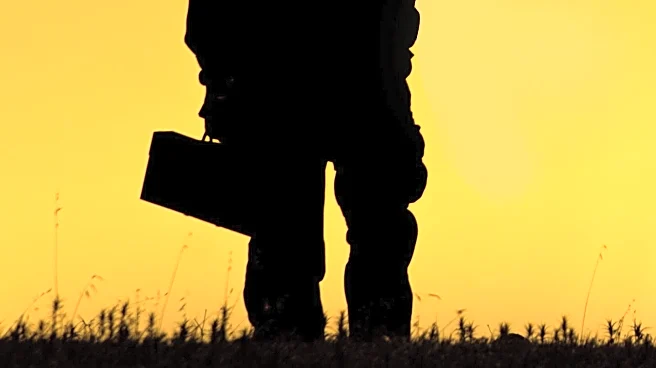What is the story about?
What's Happening?
The Israeli Defense Forces (IDF) are facing a troubling increase in suicides among soldiers, particularly reservists, following their service in recent conflicts. The IDF has bolstered its mental health support systems, deploying hundreds of mental health officers and therapists to address this issue. Despite these efforts, the number of suicides has risen, with 21 soldiers taking their own lives in 2024, the highest since 2011. Experts warn of a potential wave of suicides as soldiers struggle with post-traumatic stress disorder (PTSD) and the challenges of reintegrating into civilian life.
Why It's Important?
The rise in suicides among reservists underscores the urgent need for effective mental health support within military organizations. This issue highlights the psychological toll of combat and the difficulties soldiers face when transitioning back to civilian life. The IDF's response, including increased mental health resources and support systems, is crucial in preventing further tragedies. The situation calls for broader awareness and action from military leaders, policymakers, and society to address the mental health needs of service members and ensure their well-being.
What's Next?
The IDF is likely to continue expanding its mental health initiatives, focusing on early intervention and support for soldiers experiencing distress. Collaboration with civilian mental health services may be strengthened to provide comprehensive care for those transitioning out of military service. The ongoing efforts to address this crisis may lead to policy changes and increased funding for mental health programs within the military. Additionally, there may be calls for greater transparency and accountability in how the military handles mental health issues.
Beyond the Headlines
The increase in soldier suicides raises ethical and cultural questions about the responsibility of military organizations to care for their personnel. It highlights the need for a shift in societal attitudes towards mental health, encouraging open discussions and reducing stigma. The situation also emphasizes the importance of community support and the role of families in helping soldiers cope with trauma. Long-term solutions may involve integrating mental health education into military training and fostering a culture of empathy and understanding.















